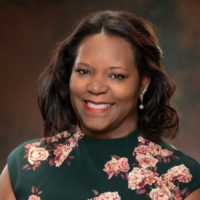by Bill Snyder
Despite advances in medical care, African Americans continue to experience disproportionately high rates of illness and death because of a well-entrenched system of “structural racism.”
The nation is now focused on the deaths of black citizens in police custody but systemic racism permeates every facet of American society including health care, according to panelists who participated in a webinar presented last week by the Vanderbilt University Medical Center Office of Health Equity.
“As much as medicine wants to rise above the biases of society, in many ways medicine reflects those biases,” said Jonathan Metzl, MD, PhD, the Frederick B. Rentschler II Professor, chair of the Vanderbilt University Department of Medicine, Health and Society and author of the book Dying of Whiteness.
Five hundred people attended the webinar entitled “Racism, Health and Health Care: Where do we go from here?” The hour-long discussion was moderated by Consuelo Wilkins, MD, MSCI, VUMC’s Vice President for Health Equity and Associate Dean for Health Equity in the Vanderbilt University School of Medicine.

A recording of the panel discussion and anti-racism resources can be accessed on the Office of Health Equity website: https://www.vumc.org/healthequity/anti-racism-hub.
Derek Griffith, PhD, professor of Medicine, Health, & Society at Vanderbilt, began the webinar by defining racism as a social system based on an ideology of inferiority. Racism uses power to devalue and disempower people deemed to be “inferior” and limit access to resources and opportunity, he said.
Race-based medicine, which wrongly attributes health disparities to intrinsic physical differences between blacks and whites, has been widely discredited. Yet it persists even in the medical literature, said Will Furuyama, a rising fourth-year medical student at Vanderbilt and co-president of the medical school’s Social Mission Committee.
“This belief structure is present in the everyday lives of black medical students,” he said. “Black medical students … must regulate themselves to appear thoughtful and moderate in response to racist beliefs and violence that are thoughtless and extreme.”
“Every black person has a personal and communal story of injustice and unfairness,” observed Kristy Sinkfield, MEd, director of VUMC’s Strategy and Innovation Office and co-founder of the African American Employee Resource Group.
What can be done?
Last week in the Journal of the American Medical Association, Metzl and his colleagues outlined a model for incorporating social justice and health equity into health care. It’s called “structural competency.”
Structurally competent health centers could, for example, expand telemedicine by ensuring underserved communities have access to the Internet, provide food and housing assistance, and create medical-financial-legal partnerships to help people with rent, immigration issues and labor concerns.
African American medical students at Vanderbilt already are partnering with their communities to lower barriers to health care, Furuyama said. “I remain in awe of my peers who have committed their talents to solving the racist beliefs and violence that we have inherited,” he said.
Sinkfield encouraged managers to take a “diversity and inclusion” pause before they act. “Can we make this decision or that change without the people at the table who those decisions and actions impact?” she asked.
“It starts with each individual, choosing to do something different.”












